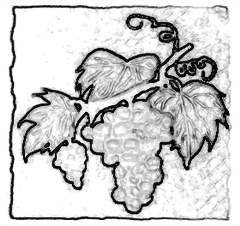
History of the Wine in Basilicata – The Country of the Wine: Oenotria
Wine is certainly the drink which accompains meal of million of persons. In this way it is possible to better savour meal. The same importance is given to the wines of aperitif which prepare our body and soul to the meal. This hydroalcoholic blend of organic acids (acetic acid, etc.), glycerin, sugars (fructose, glucose), salts, tannin, vitamins and volatile compounds (which consitute its bouquet) is near man ever since. Indeed, with wine man has always toasted in his moments of happiness, as the wish of oblivion in his moments of sadness. It is important to remember the unavoidable value of the wine during religious rites for all the ancient populations...until today. Suffice it to say that the word WINE derives form the Sanskrit word VENA, which means LOVING (from which also the word Venus derives). So, wine was strongly linked to all the fields of the life in which the most important status was loving and love.
But when, where and how did man reach to produce wine? Like for the discoveries or production of extraordinary things..it was by chance! Some grapes were forgotten carelessly in wineskins and... The period of wine production from uncultivated grapes dates back to Neolithic (10,000-6,000 years ago) even if archaeological finds have dimonstrated that the “Vitis vinifera” (cultivated specie with which modern wine is produced) grew spontaneously 300,000 years ago throughout Mediterranean area. From this area it developped in all the zones with a temperate climate.
At this point, it is necessary to refer to that region of the mediterranean area which takes its name from the fact that was full of excellent vine, Oenotria. Oenotria is nowadays Basilicata, and particularly the area between Greek colonies of Metaponto, Siris and Sibari on Ionian Sea and the Achaean city of Posidonia on the Tyrrhenian Sea. This name was given by the Greek colonists, arrived here since the 7th century, who could notice the presence of many vines and the deliciousness of the wine (oinos) produced here.